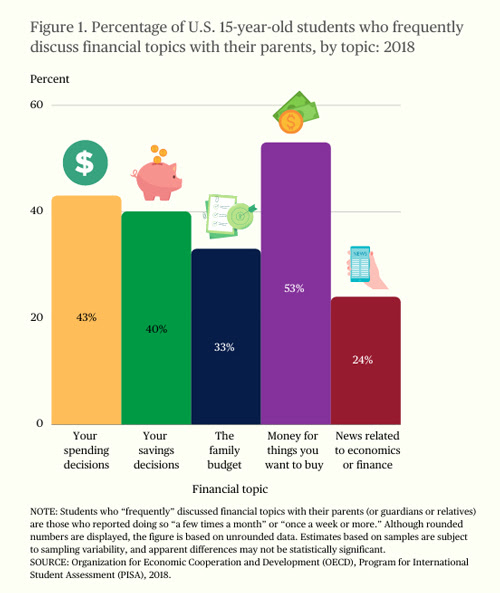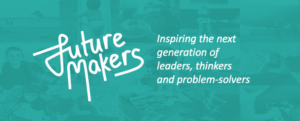February 4, 2023
NCES Newsletter
The third of three items from the folks of IES.
NCES Newsletter
This monthly IES NewsFlash provides a high-level overview of NCES publication activities for the past month and promotes upcoming NCES resources and events. For more NCES news, join our mailing list or follow us on Twitter, Facebook, LinkedIn, and YouTube. What’s New
High School Counseling and College Financial Aid (report release)
This Data Point uses data from the High School Longitudinal Study of 2009 (HSLS:09), a national study of more than 23,000 ninth-graders in 2009. Students answered surveys between 2009 and 2016. College transcripts and financial aid records were collected in 2017–18 in the Postsecondary Education Transcript Study and Student Financial Aid Records Collection (PETS-SR). This Data Point investigates whether students who expected to go to college after high school met with a high school counselor about financial aid and completed the Free Application for Federal Student Aid (FAFSA), and whether meetings and completion varied by parental education. It also describes whether students who met with a high school counselor about financial aid received need-based or merit-based grants in college.
New Platform to Apply for Restricted-Use Data Access (web portal)
The federal statistical agencies have worked together to create a standard application process (SAP) for applying for access to confidential microdata. Beginning December 8, 2022, new applicants can apply on one, consolidated portal at ResearchDataGov.org. Visitors to the portal can browse a catalog of protected data assets from federal statistical agencies and units and submit an application from the same website.
Users with questions about existing agreements (i.e., licenses) or arrangements for use of restricted-use data should contact NCES directly at IESData.Security@ed.gov.
The SAP was developed in response to the Foundations for Evidence-Based Policymaking Act of 2018, to make data more easily accessible to the appropriate institutions, government entities, and individuals. Applications are limited to projects with an evidence-building purpose.
For more information, visit the SAP informational website or the NCES website https://nces.ed.gov/statprog/instruct.asp.
Spotlight
NCES Celebrates Black History Month (Fast Fact)
February is Black History Month, and NCES is celebrating with two updated Fast Facts. Learn about historically Black colleges and universities (HBCUs), and explore data on the learning experiences of Black students throughout their education careers and the characteristics of Black teachers and faculty!
Read the HBCU Fast Fact and the Black History Month Fast Fact.
International Computer and Information Literacy Study: 2023 Data Collection (blog)
In April, the National Center for Education Statistics (NCES) will kick off the 2023 International Computer and Information Literacy Study (ICILS) of eighth-grade students in the United States. This will be the second time the United States is participating in the ICILS.
New Data from NCES: School Experiences with COVID-19: November 2022 (data release)
NCES released the latest findings from the School Pulse Panel (SPP). These SPP data examine learning recovery, summer learning, staff vacancies, learning modes offered by schools, and staff and student quarantine prevalence within schools.
Key Findings from November 2022:
Pandemic Disease Preparation
- Eighty-two percent of public schools indicated they had a written plan in place to deal with a pandemic disease scenario, a higher percentage than the 46 percent of public schools that indicated they had such plans during the 2017-18 school year on the School Survey on Crime and Safety (SSOCS), another NCES sample survey.
School Safety: Policies, Practices, and Procedures
- During the 2022-23 school year, public schools have a variety of written plans in place that detail procedures to follow for emergency scenarios. These include active shooter situations (96 percent), natural disasters (94 percent), and suicide threats or incidents (92 percent).
Safety in the Classroom: Teacher Trainings and Student Discipline
- During the 2022-23 school year, frequently reported safety trainings provided for teachers include: safety procedures such as for handling emergency situations (96 percent), positive behavioral intervention strategies (“PBIS”; 93 percent), recognizing signs of bullying behaviors (84 percent), recognizing signs of self-harm or suicidal tendencies (84 percent), and crisis prevention and intervention (84 percent).
- Seventy-three percent of public schools reported providing trainings on diversity, equity, and inclusion (DEI), and 65 percent provided training for recognizing and responding to behaviors involving bias or hate crimes against traditionally marginalized groups.
Security Personnel
- Fifty percent of public schools have one or more full- or part-time school resource officers (SRO) at their school at least once a week during the 2022-23 school year. An SRO is a sworn law enforcement officer (SLEO) with arrest authority, who has specialized training and is assigned to work in collaboration with school organizations.
Learning Modes and Quarantine Prevalence
- During November 2022, 99 percent of public schools offered in-person learning, 16 percent offered full-time remote learning, and 5 percent offered hybrid learning.
- In November 2022, 30 percent of public schools reported having to quarantine students and 18 percent reported having to quarantine staff members.
By the Numbers
Trainings/Engagement Opportunities
- February 18, 9:30 a.m. ET: CIES pre-conference training: “Comparative and International Education Research Made Easy Using Free Online Data Platforms and Tools”
- March 16, 12:00 p.m. ET: Virtual workshop: “Accessing and Exploring NCES/Census Data”
- Webinars available on YouTube: “Colleges by the Numbers: Exploring IPEDS and College Navigator,” “Stakeholder Briefing: 2022 National Teacher and Principal Survey Results,” and “P-24: Welcome to the New DataLab: A Tour of NCES’s Improved Online Data Tool”
To receive future newsletters, make sure to subscribe for updates on General NCES News here.
The Institute of Education Sciences, a part of the U.S. Department of Education, is the nation’s leading source for rigorous, independent education research, evaluation, statistics, and assessment. IES is celebrating 20 years. Here’s how to get involved.
By visiting Newsflash you may also sign up to receive information from IES and its four Centers NCES, NCER, NCEE, & NCSER to stay abreast of all activities within the Institute of Education Sciences (IES).
No comments yet.
RSS feed for comments on this post. TrackBack URI
- SEO Powered Content & PR Distribution. Get Amplified Today.
- Platoblockchain. Web3 Metaverse Intelligence. Knowledge Amplified. Access Here.
- Source: https://virtualschooling.wordpress.com/2023/02/04/nces-newsletter-11/
- 000
- 20 years
- 2016
- 2018
- 2022
- 2023
- 7
- 84
- 9
- a
- About
- access
- accessible
- Act
- active
- activities
- After
- against
- agencies
- agreements
- Aid
- All
- and
- Another
- Application
- applications
- Apply
- Applying
- appropriate
- April
- arrest
- assessment
- Assets
- assigned
- authority
- available
- Beginning
- between
- bias
- Black
- Blog
- Briefing
- bullying
- By the numbers
- careers
- catalog
- Category
- celebrates
- Celebrating
- Center
- characteristics
- clear
- collaboration
- collection
- College
- Colleges
- Colleges and Universities
- comment
- comments
- Completed
- completion
- computer
- Congress
- contact
- COVID-19
- create
- Crime
- Crimes
- crisis
- data
- deal
- December
- Department
- detail
- developed
- directly
- disasters
- discuss
- Disease
- Diversity
- during
- easily
- ed
- Education
- emergency
- enforcement
- entities
- equity
- evaluation
- events
- existing
- expected
- Experiences
- explore
- Exploring
- FAST
- Federal
- feedback
- financial
- Financial Aid
- follow
- Free
- frequently
- from
- future
- General
- get
- Go
- Government
- grants
- Group’s
- Handling
- having
- hbcus
- here
- High
- high-level
- higher
- historically
- history
- How
- How To
- HTTPS
- Hybrid
- identifier
- improved
- in
- include
- inclusion
- independent
- individuals
- information
- Informational
- Institute
- institutions
- International
- intervention
- investigates
- IT
- items
- kick
- latest
- Law
- law enforcement
- leading
- LEARN
- learning
- licenses
- Limited
- literacy
- made
- Made Easy
- make
- meetings
- Members
- Meta
- Michael
- modes
- Month
- monthly
- more
- National
- Nations
- Natural
- Navigator
- New
- news
- Newsletter
- Newsletters
- November
- NSF
- numbers
- offered
- Officer
- officers
- ONE
- online
- organizations
- overview
- pandemic
- panel
- parents
- part
- participating
- past
- percent
- percentage
- Place
- plan
- plans
- platform
- Platforms
- plato
- Plato Data Intelligence
- PlatoData
- Point
- policies
- Portal
- positive
- Post
- practices
- Prevention
- Principal
- procedures
- process
- projects
- promotes
- protected
- provided
- provides
- providing
- public
- Publication
- pulse
- purpose
- quarantine
- Questions
- receive
- received
- records
- recovery
- reduce
- release
- released
- remote
- remote learning
- report
- Reported
- research
- resource
- Resources
- response
- Results
- rigorous
- Safety
- same
- sap
- scenarios
- School
- Schools
- SCIENCES
- Second
- shooter
- should
- sign
- Signs
- Simple
- site
- situations
- Source
- spam
- specialized
- Staff
- standard
- States
- statistical
- statistics
- stay
- strategies
- Student
- Students
- Study
- submit
- subscribe
- such
- Suicide
- summer
- Survey
- syndication
- TAG
- teacher
- teachers
- The
- their
- Third
- threats
- three
- throughout
- time
- to
- together
- top
- topic
- Topics
- Tour
- traditionally
- Training
- trainings
- Transcript
- u.s.
- under
- United
- United States
- units
- Universities
- upcoming
- updated
- Updates
- us
- use
- variety
- visitors
- web
- Website
- week
- welcome
- whether
- WHO
- will
- within
- WordPress
- Work
- worked
- workshop
- written
- year
- years
- Your
- youtube
- zephyrnet















